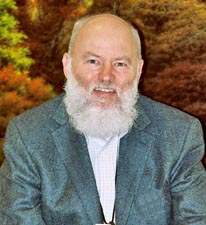Description: Mindfulness is becoming something of a mainstream concept, and is more and more foundational for a variety of psychotherapeutic approaches (e.g., CBT, ACT, DBT, MBSR, as well as psychodynamic therapy). Mindfulness practice is core to strengthening the mindfulness elements of any “mindfulness-based approach or intervention.” Rather than a “technique,” this workshop explains mindfulness as a more generic way of relating or being in one’s life that emphasizes greater moment-by-moment awareness. Research shows the benefits of being able to slow down, increase awareness, engage with “thoughts” as “thoughts,” and nonjudgmentally accept the reality before us. In this workshop, Jeff Brantley will explore the rationale for mindfulness and the importance of recent research findings, and elaborate on how its practice allows for improvement across a wide array of life domains. He will guide participants on ways to develop and deepen their mindfulness practice as well as utilize and teach mindfulness as part of their professional practice. This includes how to guide meditation and talk with clients about mindfulness.
Trainer:

Jeffrey Brantley, MD, DFAPA, is a board-certified psychiatrist and the founder of the Mindful-Based Stress Reduction program at Duke Integrative Medicine. He has been practicing meditation for more than 30 years, and began teaching mindfulness meditation to health professionals and others in 1990. He has participated in intensive meditation retreats, practicing with a variety of teachers, including Joan Halifax, Thich Nhat Hanh, Larry Rosenberg, Christina Feldman, and members of the Amaravati Buddhist monastic community. He has also completed the professional training for Mindfulness-Based Stress Reduction offered by Jon Kabat-Zinn and Saki Santorelli. He is author of best-selling books on applying mindfulness to life, including the “Five Good Minutes” series, and Daily Meditations for Calming Your Anxious Mind.
Agenda:
- Science supporting mindfulness practice and its benefits: how mindfulness changes health, brain, body
- What mindfulness is and isn’t, and how to practice
- How therapeutic work grows from mindfulness (including empathy, resilience, and burn-out)
- More specific applications of mindfulness
Learning Objectives:
At the completion of this program, participants will be able to:
- Understand the practice of mindfulness through direct practice experience.
- Name the 3 critical elements of any mindfulness practice.
- Discern how mindfulness underlies at least 2 therapeutic approaches.
- Describe the science supporting mindfulness practice and its benefits.
- Identify at least 2 elements in communicating about mindfulness effectively with clients.
- Identify at least 3 different elements that support a personal practice of mindfulness in daily life.
- for mindfulness, stress, and health: Full Catastrophe Living, by Jon Kabat-Zinn, Bantam Books, New York, 2013.
- for mindfulness and psychotherapy: Mindfulness and Psychotherapy, edited by Christopher K. Germer, Ronald D. Siegel, and Paul R. Fulton, Guilford Press, New York, 2005.
- for mindfulness and diet/weight management: The Mindful DIet, by Ruth Q. Wolever, PhD, and Beth Reardon, MS, RD, LDN, with Tania Hannan, Scribner, New York, 2015. (note, Ruth and Beth are long time colleagues and friends of mine through our work together at Duke Integrative Medicine).
- for an introduction to mindfulness, meditation and neuroscience: Buddha’s Brain, by Rick Hanson, PhD, New Harbinger, Oakland, 2009.
- for survey of mindfulness in America in a variety of walks of life: A Mindful Nation by Congressman Tim Ryan, Hay House, Carlsbad, California, 2012.
- for mindfulness applied to a large, successful business culture (Google): Search Inside Yourself, by Chade-Meng Tan, Harper One, New York, 2012.
Handouts:
6 slides per page
3 per page with space for notes
full size, color slides
Clinical Institute at the University of North Carolina at Chapel Hill School of Social Work